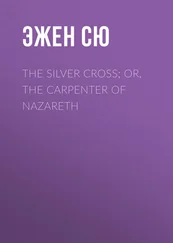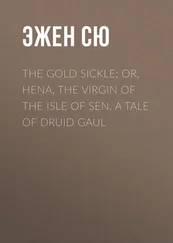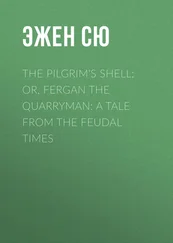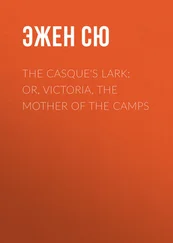Эжен Сю - The Knight of Malta
Здесь есть возможность читать онлайн «Эжен Сю - The Knight of Malta» — ознакомительный отрывок электронной книги совершенно бесплатно, а после прочтения отрывка купить полную версию. В некоторых случаях можно слушать аудио, скачать через торрент в формате fb2 и присутствует краткое содержание. Жанр: literature_19, foreign_antique, foreign_prose, на английском языке. Описание произведения, (предисловие) а так же отзывы посетителей доступны на портале библиотеки ЛибКат.
- Название:The Knight of Malta
- Автор:
- Жанр:
- Год:неизвестен
- ISBN:нет данных
- Рейтинг книги:3 / 5. Голосов: 1
-
Избранное:Добавить в избранное
- Отзывы:
-
Ваша оценка:
- 60
- 1
- 2
- 3
- 4
- 5
The Knight of Malta: краткое содержание, описание и аннотация
Предлагаем к чтению аннотацию, описание, краткое содержание или предисловие (зависит от того, что написал сам автор книги «The Knight of Malta»). Если вы не нашли необходимую информацию о книге — напишите в комментариях, мы постараемся отыскать её.
The Knight of Malta — читать онлайн ознакомительный отрывок
Ниже представлен текст книги, разбитый по страницам. Система сохранения места последней прочитанной страницы, позволяет с удобством читать онлайн бесплатно книгу «The Knight of Malta», без необходимости каждый раз заново искать на чём Вы остановились. Поставьте закладку, и сможете в любой момент перейти на страницу, на которой закончили чтение.
Интервал:
Закладка:
Thanks to his experience, and his habit of comparing cause and effect, no one knew better than himself how to predict the beginning, the duration, and the end of the storms which prevailed on the coast.
He announced the calm and the tempest, the disastrous hurricanes of the mistraon , as the northwester was named in Provence, the gentle, fruitful rains of the miegion , or south wind, and the violent tornado of the labechades , or wind from the southwest; in fact, the form of the clouds, the soft or brilliant azure of the sky, the various colours of the sea, and all those vague, deep, and undefined noises which occasionally spring up in the midst of the silence of the elements were for him so many evident signs, from which he deduced the most infallible conclusions.
Never a captain of a merchantman, never a cockswain of a bark, put to sea without having consulted Master Peyrou.
Men ordinarily surround with a sort of superstitious reverence and halo those who live apart from the rest of the world.
Peyrou was no exception to the rule.
As his predictions about the weather were almost invariably realised, the inhabitants of La Ciotat and the environs soon persuaded themselves that a man who knew so much of the things in the sky could not be ignorant of the things on the earth.
Without passing exactly as a sorcerer, the hermit of the cape of L’Aigle, consulted in so many important circumstances, became the depositary of many secrets.
A dishonest man would have cruelly abused this power, but Peyrou took advantage of it to encourage, sustain, and defend the good, and to accuse, confound, and intimidate the wicked.
A practical philosopher, he felt that his opinion, his predictions, and his threats would lose much if their authority was not supported by a certain cabalistic display; hence, although he did so with reluctance, he accompanied each opinion with a mysterious formula.
The excellent spy-glass was a marvellous aid to his power of divination. Not only did he turn it to the horizon in order to discover the chebecs and piratical vessels of Barbary, but he directed it to the little town of La Ciotat, – on the houses, the fields, and the beach, – and thus surprised many secrets and mysteries, and by this means increased the reverence he inspired.
Peyrou, however, was altogether above the vulgar sorcerer by his entire disinterestedness. Had he some honest poverty to befriend, he ordered one of his wealthier clients to put a moderate offering in some secret spot which he indicated; the poor client, informed by Peyrou, went to the spot and found the mysterious alms.
Instigated by a blind zeal, the priests of the diocese of Marseilles wished to criminate the mysterious life of Peyrou, but the surrounding population immediately assumed such a menacing attitude, and the town council bore such testimony to the excellence of the watchman’s character, that he was permitted to live his solitary life in peace.
His only companion in this profound retreat was a female eagle which, two years before, had come to lay her eggs in one of the hollows of the inaccessible rocks which bordered the coast. The male bird had no doubt been killed, as the watchman never saw him.
Peyrou gave food to the young eagles; by degrees the mother grew accustomed to the sight of him, and the year after, she returned in perfect confidence to lay in the nest which Peyrou had prepared for her in a neighbouring rock.
Often the eagle perched on the branches of the tall pine which shaded the watchman’s house, and sometimes walked with a heavy and awkward step on the little platform.
Upon that day, Brilliant, for so the watchman had named the noble bird, seduced him from his reverie. She tumbled down from the topmost branch of the pine, and with half-open wings ran up to her friend with the ungraceful, waddling gait of a bird, of prey. Her plumage, black and brown on the wings, was ash-coloured and spotted with white on the body and neck; her formidable talons, covered with thick and shining scales, terminated in three claws and a sharp spur of smooth, black horn.
Brilliant looked up at the watchman, lifting high her flat, gray head, where glittered two bold round eyes, whose iris dilated in a transparent cornea, the colour of topaz.
Her beak, strong and bluish like burnished steel, disclosed, when it opened, a slender tongue of pale red.
To attract the watchman’s attention, the eagle gently bit the end of his shoe, made of fawn leather.
Peyrou stooped and caressed Brilliant, who ruffled her feathers and uttered a discordant and broken cry.
But suddenly, hearing a step in the narrow foot-path which led to the cabin, the eagle lifted herself, uttered a long barking cry, stretched her powerful wings, hovered a moment over the colossal pine, and like an arrow shot into space. Soon nothing could be seen but a black spot on the deep blue sky.
CHAPTER IV. STEPHANETTE
A young girl with light complexion, black eyes, white teeth, and a bright and mischievous smile, appeared, and stopped a moment on the last step of the stair of rocks which led to the house of the watchman.
She wore the graceful and picturesque costume of the girls of Provence: a brown petticoat and red waist, with wide basques and tight sleeves. Her little felt hat left visible the beautiful nape of her neck and long tresses of black hair rolled under a scarlet silk net.
Orphan and foster-sister to Mlle. Reine des Anbiez, Stephanette served her in the duties of a companion, and was treated more as a friend than a servant.
Stephanette’s heart was good, true, and grateful, her conduct irreproachable. Her only fault was a mischievous village coquetry, which was the despair of the fishers and captains of small craft in the gulf of La Ciotat, nor will we except from the number of these interesting victims her betrothed, Captain Luquin Trinquetaille, captain of the polacre, Holy Terror to the Moors, by the Grace of God , – a long and significant appellation, inscribed at full length on the stern of Captain Trinque-taille’s boat.
Gallantly armed with six swivel-guns, it was the business of the polacre to escort vessels from La Ciotat which, forced by their commerce to have free intercourse with the coasts of Italy, dreaded the attacks of pirates.
Stephanette shared the veneration that the watchman on the cape of l’Aigle inspired among the inhabitants of the neighbourhood. She trembled as she approached him with downcast eyes.
“May God keep you, my child!” said Peyrou, affectionately, for he loved her as he loved all who belonged to the family of his old captain, the Commander des Anbiez.
“May St. Magnus and St. Elzear aid you, Master Peyrou!” replied Stephanette, with her most beautiful curtsey.
“Thank you for your good wishes, Stephanette. How are monseigneur and Mlle. Reine, your young and beautiful mistress? Has she recovered from her fright of the other day?”
“Yes, Master Peyrou; mademoiselle is better, although she is still quite pale. But was ever such a miscreant seen? To dare kiss mademoiselle! and that, too, in the presence of monseigneur and her betrothed! But people say these Muscovites are barbarians. They are more savage and more of Antichrist than the Turks themselves, are they not, Master Peyrou? They will be damned twice in a doubly hot fire.”
Without replying to Stephanette’s theological argument, the watchman said to her: “Does not monseigneur resent this breach of good manners?”
“He! Why, Master Peyrou, as true as Rosseline is a saint in Paradise, the same day that monseigneur came so near falling into the chasm of Ollioules, he supped as merrily as if he had just returned from a patronal feast. Indeed, it is so, – and he drank two cups of Spanish wine to the health of the young miscreant! And would you believe it, Master Peyrou, he is never tired of boasting of the courage and agility of the Muscovite! Yes, he said: ‘Manjour! instead of stealing the pin and kiss like a thief, why did he not ask for them, – my daughter Reine would have given him a kiss, and with a good heart too!’ And ever since that day monseigneur is constantly saying, ‘Really, these Muscovites are strange companions.’ But for all that, M. Honorât de Berrol turns red with indignation whenever he hears this impudent fellow, who stole a kiss from his betrothed, mentioned. And another strange thing, Master Peyrou, is that monseigneur is not willing to get rid of that wicked little horse, Mistraon, that has been the cause of all the mischief; he rides it in preference to any other. Now say, Master Peyrou, don’t you think that is tempting Providence?”
Читать дальшеИнтервал:
Закладка:
Похожие книги на «The Knight of Malta»
Представляем Вашему вниманию похожие книги на «The Knight of Malta» списком для выбора. Мы отобрали схожую по названию и смыслу литературу в надежде предоставить читателям больше вариантов отыскать новые, интересные, ещё непрочитанные произведения.
Обсуждение, отзывы о книге «The Knight of Malta» и просто собственные мнения читателей. Оставьте ваши комментарии, напишите, что Вы думаете о произведении, его смысле или главных героях. Укажите что конкретно понравилось, а что нет, и почему Вы так считаете.












